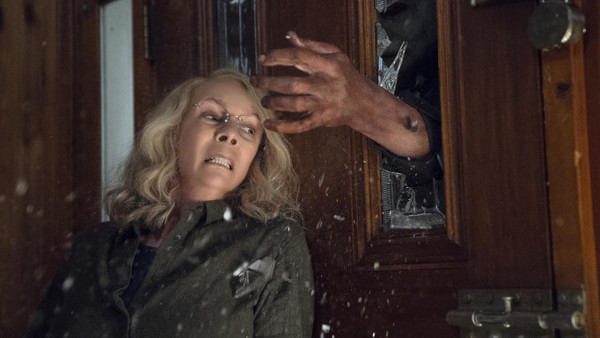10 Movies To Blame For The Current State Of Movies
4. Ignoring Bad Sequels - Halloween (2018)

Remember when a poor entry into a movie franchise required the series to pivot and actually make a concerted effort to course-correct things?
In recent years Hollywood has instead decided to simply go for a do-over if a previous film doesn't work, negating its existence in the continuity and making the next movie a sequel to the prior film(s) in the series.
The most prominent recent indicator of this trend is last year's Halloween sequel, which wipes seven other Halloween movies off the map while positioning itself as a "true" sequel to the 1978 movie.
Halloween 2018 went on to gross a ridiculous $255.5 million worldwide against a $10 million budget, confirming that this relatively glib approach to sequelising can actually pay off.
And so, the recent Terminator: Dark Fate tried the same thing, ditching every post-T2 sequel, while cynically undermining the very role franchise hero John Connor (Edward Furlong) played in the original movies. Despite decent reviews, it bombed at the box office.
Even with Dark Fate's failure, Halloween's success is likely to ensure that other franchises will follow suit, dusting themselves off after their failures and simply trying again until they get it right.
The Alien franchise has been toying with the idea in recent years, for example, with Neill Blomkamp prepping a direct sequel to Aliens, though it hasn't materialised as of yet.
Hell, despite Terminator trying this trick twice already, they might go for the hattrick before we know it - if Dark Fate didn't terminate the series' box office prospects permanently, that is.
But Halloween 2018 wasn't the first movie to "de-canonise" other entries in the franchise: Halloween H20 did it 20 years earlier, for example, while Superman Returns ignored the third and fourth Christopher Reeve-starring Superman films, and Rocky Balboa near enough jettisoned Rocky V by mostly ignoring it existence.
While some might praise studios for having the gall to re-jig stories that aren't working, the problem is that this flippant approach to continuity gives filmmakers less "responsibility" over the movies they make.
The safety net of "if it doesn't work, we'll just try again in five years" isn't conducive to creative storytelling, but you should definitely expect to see it happen far more often in the years to come.